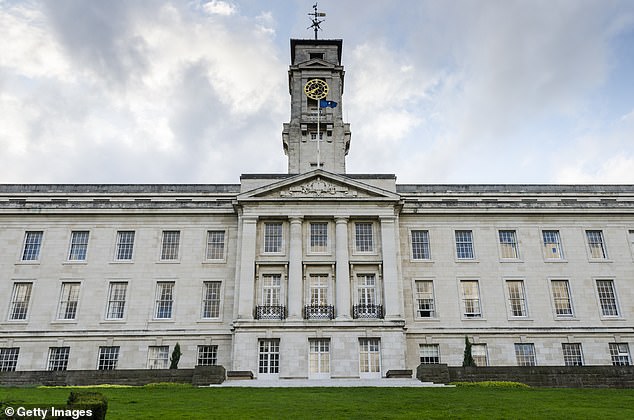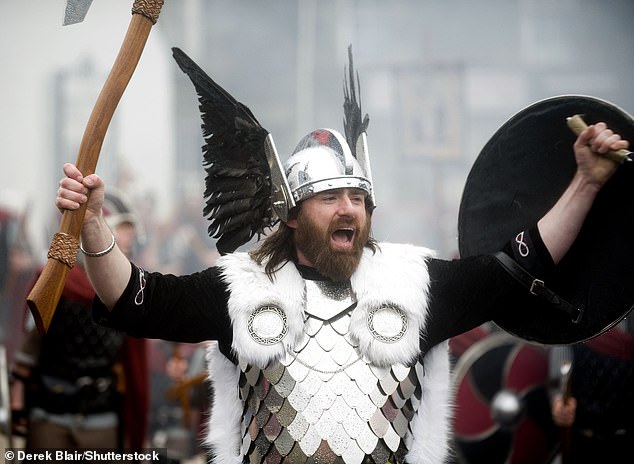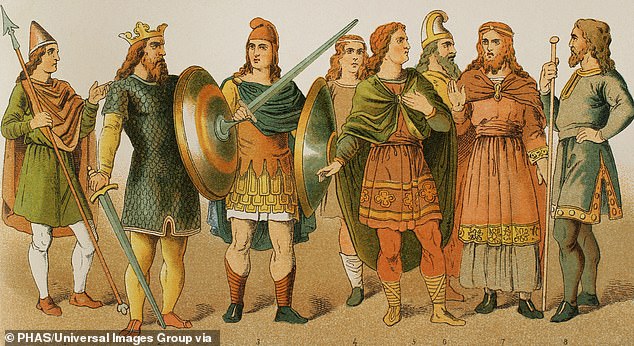A university has removed the Anglo-Saxon term from module titles in a bid to “decolonise the curriculum”.
The University of Nottingham is removing the term from several courses, including History and English Literature, and replacing it with the more popular “Early Medieval English”.
Scholars have been campaigning to replace Anglo-Saxon with “Early Medieval English” out of concern that the former suggests a native and distinctive Englishness.
This is due to concerns that in recent years the term Anglo-Saxon has become too associated with racists (particularly those in the United States) who use it to describe white people.
Russell Group University is also seeking to ‘problematise the term ‘Viking’,’ according to The Daily Telegraph.
Examples of Anglo-Saxon people. The University of Nottingham is removing the term “Anglo-Saxon” from several courses, including History and English Literature, and replacing it with the more popular term “Early Medieval English”.

The Trent Building at the University of Nottingham. Academics have been campaigning to replace Anglo-Saxon with “Early Medieval English” because of concerns that the former suggests a distinctive native English identity.
It is the only higher education institution in the UK to offer a Viking Studies course, but now Nottingham wants to rename an English literature module ‘A History of Seven Kingdoms: Anglo-Saxon and Viking Age England from Bede to Alfred the Great’ to ‘Early Medieval England from Bede to Alfred the Great’.
This is claimed to be due to concerns about the connection to Norse mythology and “race, empire and Nazism”. For example, the Nazis used Norse iconography for organisations such as the SS.
The term Anglo-Saxon is used to describe the cultural group of people who emerged after the fall of Roman Britain and before the Norman Conquest in 1066.
It refers to three Germanic peoples: the Angles, the Saxons, and the Jutes, who ruled what would become a united England.
In recent years, the term has become increasingly controversial.
Before the University of Nottingham announced this removal, in 2023 the University of Cambridge began teaching students that Anglo-Saxons did not exist as a distinct ethnic group.
The teaching was intended to explain that Anglo-Saxon, Scottish, Welsh and Irish identities were not “coherent”.
Following the Black Lives Matter protests in 2020, universities across the UK and around the world have begun a process of “decolonising the curriculum”.

A man dressed as a Viking. Nottingham is also looking to “problematise the term ‘Viking’”, according to The Daily Telegraph. It is the only higher education institution in the UK to offer a Viking studies course, but now Nottingham wants to rename an English literature module
According to the National Education Union, decolonising education involves a thorough examination of British imperialism and racism, as well as understanding the history of inequalities and questioning historical racism.
These efforts to decolonize education have impacted multiple subjects, including Philosophy, where SOAS University of London (formerly the School of Oriental and African Studies) has sidelined classical Greek thinkers such as Plato and Aristotle in favor of new-age thinkers such as an Indian-American feminist, a Nigerian “gender theorist,” and a Japanese Zen scholar.
In 2022, the Quality Assurance Agency, which monitors course standards, incorporated critical race theory into its degree recommendations.
She urged that courses teach about colonialism, including computer science, where courses address “how colonial value divisions and hierarchies are replicated and reinforced within the computing discipline.”
In addition to mathematics, which according to the QAA should “present a multicultural and decolonized vision of mathematics.”

